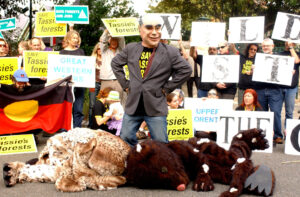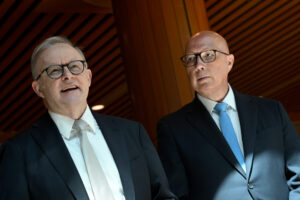Abbott takes a punt on repealing legislation

This week, the Opposition Leader took a similar approach to the debate on gambling reform. He told a Clubs NSW rally that “if this legislation is passed by the Parliament and if we then subsequently form a government, I predict we will rescind it”. Of course, if the Coalition does attempt to dismantle the government’s mandatory pre-commitment scheme he will face a hostile Senate, and would need to rely on the same drawn-out and convoluted process required to wind back a price on carbon.
Mr Abbott’s new gambling policy is apparently based on the premise that poker machine reform would risk “renting the social fabric of this country”. This is the same fallacious argument put by clubs which rely on gambling revenue. They contend that all sorts of worthwhile pursuits would be impossible without it, at the same time wilfully ignoring the human misery and family breakdown associated with their lucrative revenue stream.
Recently a number of high-profile identities from the major football codes have joined the campaign against poker machine reform, adopting the stance of Clubs Australia. They argue that the loss of gambling revenue would put at risk their support for local sporting teams. What they haven’t acknowledged is how much public support there is for gambling reform. A survey by The Australia Institute found 81 per cent of respondents supported people being given the opportunity to set a spending limit before they play the pokies and 67 per cent thought it would help gamblers if they were required to do so. Liberal voters were just as likely as Labor and Green voters to think setting a limit makes sense.
The proposal by the Gillard government to help problem gamblers, their families and their communities places the football codes in a dilemma. Having walked successfully on both sides of the street for the past two decades, this issue forces the football codes to decide whether they are there to help communities, or to milk them. Their decision to side with the gambling industry on this issue makes it pretty clear which side they are really on.
Between the Lines Newsletter
The biggest stories and the best analysis from the team at the Australia Institute, delivered to your inbox every fortnight.
You might also like
Here’s something absolutely cooked about books in Australia
It’s a big week for Australian culture, with announcement of the shortlist for the Miles Franklin Literary Award, one of the country’s top writing prizes.
What kind of country do you want? | Between the Lines
The Wrap with Amy Remeikis What Peter Dutton and the Coalition are offering Australian voters is a fiction. It’s headlines without substance, chimeras and half-truths that never stand up to scrutiny, but comprehensively misdirects the media’s gaze. The nation has been in election mode since the beginning of the year, when Anthony Albanese used his


